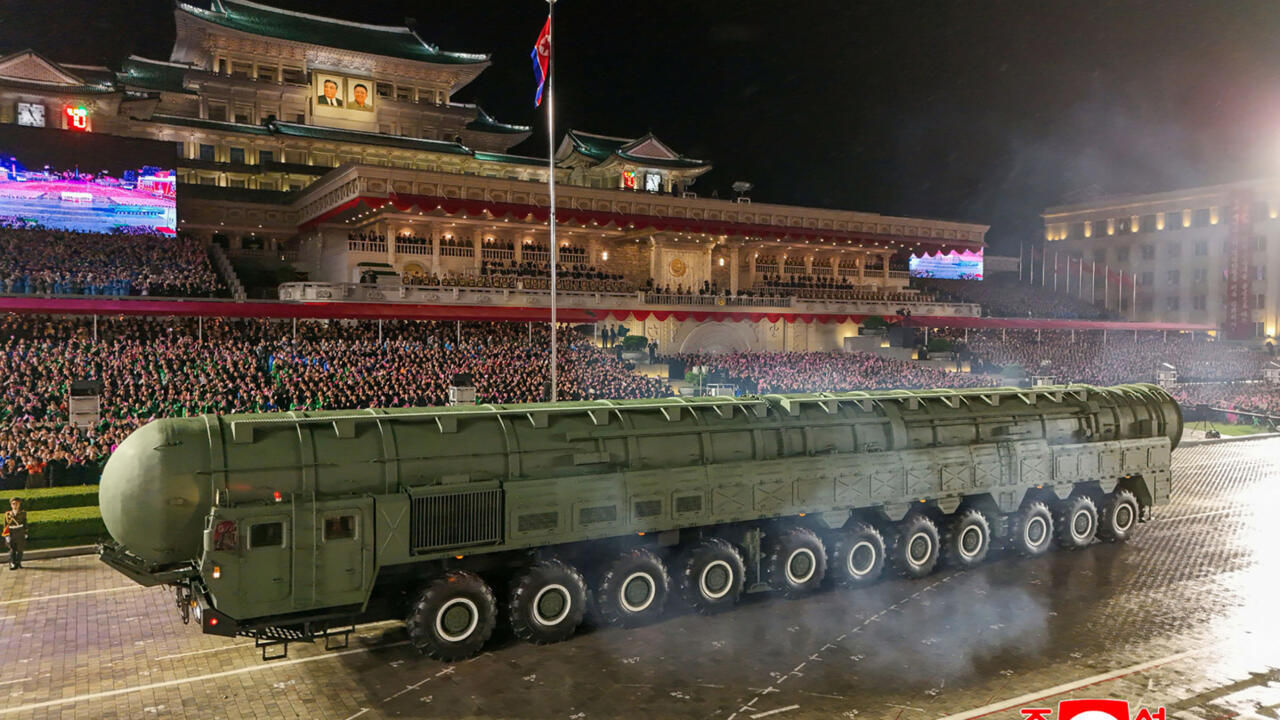News Flash
News Flash

SEOUL, Oct 11, 2025 (BSS/AFP) - North Korea showed off its "most powerful" intercontinental ballistic missile at a military parade attended by top officials from Russia and China, Pyongyang's state media reported Saturday.
The event to mark 80 years under the ruling Workers' Party came as leader Kim Jong Un has been emboldened by the war in Ukraine, securing critical support from Russia after sending thousands of North Korean troops to fight alongside Moscow's forces.
Dmitry Medvedev, deputy head of Russia's Security Council and a close ally of President Vladimir Putin, attended the parade Friday alongside Chinese Premier Li Qiang and Vietnam's leader To Lam -- all seated near Kim, according to images released by the official Korean Central News Agency.
The spectacle featured some of the country's most advanced weapons, including its new Hwasong-20 intercontinental ballistic missile (ICBM), which state media described as its "most powerful nuclear strategic weapon system" whose "strike range knows no bounds."
The Hwasong-20 has not yet been demonstrated in flight tests, but the "Kim regime clearly seeks the capability to destroy cities around the world," said Leif-Eric Easley, a professor at Ewha University in Seoul.
The parade was about Kim "claiming domestic legitimacy and international recognition for a regime that overinvests in weapons at the expense of economic development," he added.
Thousands of people in colourful traditional dress filled the streets of the North Korean capital for the late-night event, the images showed, waving national flags and cheering as weapons rumbled down the rain-soaked main streets.
Among the featured weapons, long-range strategic cruise missiles, drone launch vehicles, and ground-to-air and ground-to-ground missiles paraded one after another, KCNA added.
The country's army "should continue to grow into an invincible entity that destroys all threats", Kim said in a speech, but did not directly mention Washington or Seoul.
But when introducing a military unit near the inter-Korean border, as the troops marched in, the state-run KCTV narrator described it as "a steel fortress" that "faces the most hostile state," in a clear jab at South Korea.
Kim made an apparent nod to North Korean troops sent to fight alongside Moscow's forces in Russia's war against Ukraine.
"The heroic fighting spirit displayed, and the victory achieved, by our revolutionary armed forces on the foreign battlefields for international justice ... demonstrated the ideological and spiritual perfection," he said, according to KCNA.
Around 600 North Korean soldiers have been killed and thousands more wounded fighting for Russia, Seoul has said.
KCTV footage showed troops Kim had dispatched to Russia goose-stepping beneath the North Korean and Russian flags, with Medvedev applauding from the stands.
- Structural shift -
The parade displayed the isolated, nuclear-armed country's "inexhaustible defense technology potential and its astonishing pace of development that the world can no longer ignore", KCNA said.
KCTV showed a special forces soldier smashing what appeared to be flaming wooden clubs with his head, and troops surfacing from the sea after stealthily emerging from what looked like a submarine to open fire.
It also showed spectators in raincoats and foreign guests filming the spectacle on their phones.
The celebrations in Pyongyang come after Seoul said a meeting between North Korea and the United States "cannot be ruled out" on the sidelines of this year's APEC summit in South Korea.
Despite meeting Kim three times during his first term, US President Donald Trump failed to secure a lasting agreement on North Korea's nuclear programme.
Since then Pyongyang has repeatedly declared itself an "irreversible" nuclear state.
Last month, Kim appeared alongside Chinese President Xi Jinping and Putin at an elaborate military parade in Beijing.
Seong-Hyon Lee, a visiting scholar at the Harvard University Asia Center, told AFP: "It is crucial to see this parade not as an isolated event, but as the culmination of a deliberate, structural shift in regional geopolitics."
"It serves as a stark warning that Seoul's strengthened alliance with Washington will be met with a consolidated and powerful trilateral bloc on its doorstep."